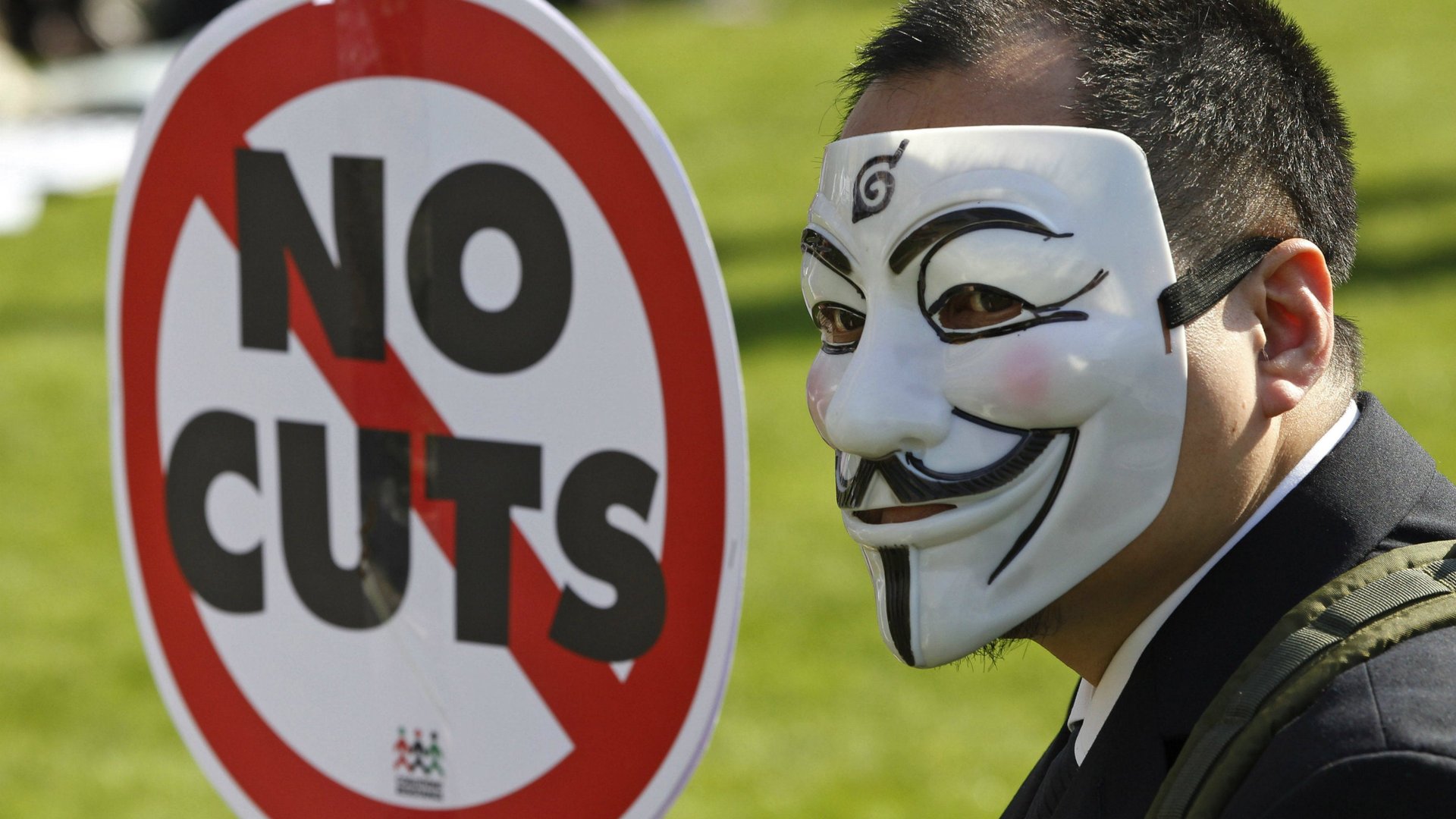Britain set to bet on a slightly less austere austerity
On Dec. 5 in London, George Osborne, the Chancellor of the Exchequer, will deliver his Autumn Statement, an annual update on the state of the British economy and public finances. No one is expecting a cheery scenario as UK economic growth continues to disappoint and government officials struggle to find ways to spur growth while reducing public spending.


On Dec. 5 in London, George Osborne, the Chancellor of the Exchequer, will deliver his Autumn Statement, an annual update on the state of the British economy and public finances. No one is expecting a cheery scenario as UK economic growth continues to disappoint and government officials struggle to find ways to spur growth while reducing public spending.
But in an unusual move, some details from tomorrow’s statement were released earlier today. When asked why, a Treasury spokesman said the news came out in a cabinet meeting—but there’s another likely explanation as well. Osborne could be setting the stage to show he’s investing in growth. That could help him offset criticism he’ll face for enacting harsh austerity measures that haven’t worked. The government is not on track to meet debt-reduction targets, and Osborne has admitted that Britain is taking longer to recover than expected. Opposition leaders and labor unions have criticized his strategies, while even members of his own party have questioned his competency.
Osborne, an Anglo-Irish aristocrat from a wealthy family, is viewed with distrust by many Brits who view him as out of touch with how ordinary people live. Slashing spending during a downturn has made him even more unpopular. During the Olympic games in London, the only blight on an otherwise hugely successful event came when Osborne was booed during a medal ceremony at a Paralympics game, in large part for cutting services to disabled people.
While Osborne has said that he plans to stay on track and not “open the spending taps” he’s likely tomorrow to temper talk about welfare cuts by focusing heavily on taxing the rich, and on strategies to boost economic growth such as infrastructure projects, and plans to explore Britain’s shale gas reserves. It’s not a complete backtracking from earlier plans, but rather more like covering his tracks. He told the BBC that “Britain is on the right track and turning back now would be a disaster.”
Here are a few key plans that Osborne is widely expected to unveil:
Austerity continues… Talk about welfare cuts is predicted. The government has already said as much with plans to eliminate £10 billion by 2016/17 in welfare cuts to meet targets. As government borrowing has gone up this year amid weak tax receipts and higher welfare payments, the only surprise may be that future cuts are deeper than previously thought.
…but more taxes on the rich. To secure an agreement to make welfare cuts, Osborne, a Conservative, has made a deal with Lib Dem leader Nick Clegg to increase taxes on the wealthy. The deal is to raise revenue by cutting the tax-free allowance for pension contributions, and is expected to be skewed toward the richest 1%, even though mid-level earners will also be affected.
Gambling on gas. The press is speculating about new gas plants that could account for half of the country’s power generation by 2030, a plan that has environmentalists up in arms even before it’s been formally announced. One vision includes as many as 30 new gas plants playing a primary role, while another has some power stations used as a backup solution to clean and renewable energy, allowing the country to still meet carbon targets.
Bashing tax avoiders. Expect more noise about tax-avoiding multinationals like Google, Amazon and Starbucks. Yesterday, the head of the UK’s Institute of Directors called for politicians to stop “hectoring from Westminster” and change the tax laws. The comment is in response to condemnation by politicians of Amazon and Google for immorally minimizing corporate tax payments. Amazon and Google insist that their payments to the UK government were appropriate, while Starbucks has said it “needed to do more.” Osborne is likely to elaborate on a plan announced today to give Her Majesty’s Revenue Service more than £100 million to crack down on tax dodgers and avoiders (both companies and individuals) with the stated aim of getting billions back to pay off the deficit.